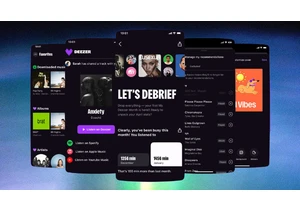OpenAI announced on Thursday a research preview of Operator, an AI agent that can browse the web and perform tasks for the user. Operator is powered by the Computer-Using Agent (CUA), an AI model that merges GPT-4o’s vision capabilities with reasoning capability.
OpenAI trained CUA to let Operator complete digital tasks by interacting with the buttons, menus, and text fields within the graphical user interfaces of the user’s computer and the websites they visit. Add the reasoning and self-checking capabilities seen in OpenAI’s o1 model, and Operator can break down tasks into steps and adaptively self-correct when it runs into problems.
Operator is OpenAI’s answer to Anthropic’s Computer Use Model, which was unveiled last October and marks a step toward generative AI models gaining more autonomy and the ability to control outside tools.
OpenAI says the tool is still a work in progress, but that it has already set records in a number of benchmark tests that measure success with computer-based and web-based tasks.
The tool is available as a “research preview” only to subscribers to OpenAI’s “Pro” tier, which costs $200 a month. The company intends to roll out Operator to its Plus, Team, and Enterprise subscribers, and eventually build the features into ChatGPT. OpenAI told Techcrunch that it’s working with companies including DoorDash and Instacart to make sure Operator doesn’t come in breach of any terms of service agreements. “The CUA model is trained to ask for user confirmation before finalizing tasks with external side effects; for example, before submitting an order, sending an email, etc.,” OpenAI’s blog post explains, “so that the user can double-check the model’s work before it becomes permanent.”
Login to add comment
Other posts in this group

If real Easter eggs aren’t your thing this weekend, you may find hunting for digital ones more enjoyable. And there are some cool ones to find at your fingertips, provided you have an iPhone or Ma

With music streaming, users have gotten used to being at the mercy of algorithms. But French music streamer Deezer is making it easier for its subscribers to make the algorithm work for them.

Trying to get from point A to point B? If only it were that simple! With any manner of travel these days, you’ve got options: planes, trains, buses, ferries, and beyond. And finding the best

When Twitter cofounder and Medium founder Evan “Ev” Williams was planning his 50th birthday party, he didn’t know who to invite. Having spent more of his life building and scaling tech

If you thought you’d heard the last of the viral “Apple” dance, think again. The TikToker behind it is now suing Roblox over its unauthorized use.
Last year, during the height of Brat su

A Wall Street Journal report this week gave an extensive look into how Elon Musk, the

Netflix fared better than analysts anticipated during the first thr
